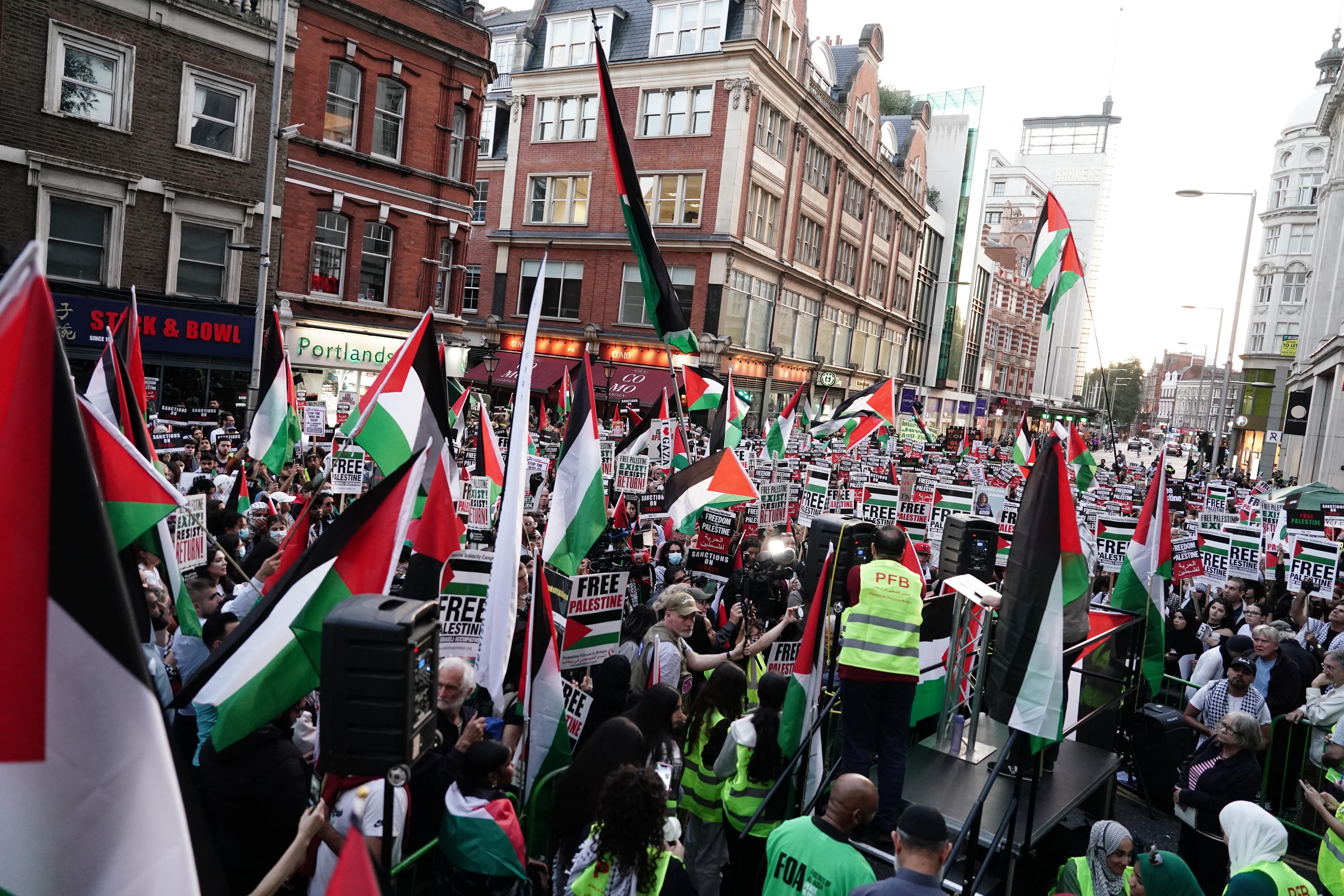Concerns London ‘no-go zone for Jews’ taken extremely seriously – Downing Street
The government’s counter-extremism tsar claimed regular pro-Palestine protests had turned London into a ‘no-go zone for Jews’.

Your support helps us to tell the story
From reproductive rights to climate change to Big Tech, The Independent is on the ground when the story is developing. Whether it's investigating the financials of Elon Musk's pro-Trump PAC or producing our latest documentary, 'The A Word', which shines a light on the American women fighting for reproductive rights, we know how important it is to parse out the facts from the messaging.
At such a critical moment in US history, we need reporters on the ground. Your donation allows us to keep sending journalists to speak to both sides of the story.
The Independent is trusted by Americans across the entire political spectrum. And unlike many other quality news outlets, we choose not to lock Americans out of our reporting and analysis with paywalls. We believe quality journalism should be available to everyone, paid for by those who can afford it.
Your support makes all the difference.The prime minister takes concerns about the impact of regular pro-Palestine protests “extremely seriously”, Downing Street has said, following claims London has become a “no-go zone for Jews”.
Robin Simcox, the government’s counter-extremism tsar, warned that a “permissive environment for radicalisation” was developing and urged the government to “move faster” and “be bolder” in taking action.
Writing in The Daily Telegraph, Mr Simcox said: “We will not have become an authoritarian state if London is no longer permitted to be turned into a no-go zone for Jews every weekend.”
His comments were echoed by the chief executive of the Community Security Trust, which provides security for Britain’s Jewish community.
Mark Gardner said: “I think as a headline it’s deeply troubling, but it also contains a huge element of truth.”
He added that his organisation had received multiple statements from “people saying I’m not going into town at the weekend because of these demonstrations”.
Responding to Mr Simcox’s comments, a No 10 spokeswoman said: “The prime minister would want to make clear it is very important to take people who feel this way extremely seriously and he is acutely aware of the fear and distress that many people have been feeling and communities across our country.
“That’s why he’s very clear that some of the behaviour that we’ve seen in recent weeks is unacceptable and it doesn’t reflect the values that we have as a society.
“While it’s not his experience of the UK, and he spoke to that as well in his speech, he does believe it’s really important to take people’s concerns extremely seriously and that’s why we’re acting accordingly.”
That action includes setting out a new definition of extremism, which could come as early as next week and may ban government officials from engaging with or funding groups or individuals deemed extremist.
She added that Mr Simcox was “referring to intimidation and examples of hate that we have seen by a minority at protests in London”.
Mr Simcox’s comments followed Rishi Sunak’s promise to deal with the “root causes” of the problem and ensure that “no extremist organisations or individuals are being lent legitimacy by their actions and interactions with central government”.
He said: “While debates over a definition can feel like academic navel-gazing when actual extremist acts are so common, the work does have a clear purpose: it will be used to guide future decisions over who government does, and does not, engage with and fund.
“The government is right to act. Evidence that the state works with or funds extremists has appeared in independent reviews of government strategies dating back over a decade. This needs fixing, new definition of extremism or not.”
He suggested the government and its agencies already have powers to combat extremism but had failed to tackle groups that fall below the threshold of being terrorists.
If the government decides to whip up that kind of fear, then people are going to feel that, of course they are
He said Whitehall “has more power to tackle extremism than it sometimes thinks.
“After all, the Iranian government does not have an inalienable right to run schools and mosques in our capital city,” he said.
“It is not an unalterable democratic principle that Hamas and the Muslim Brotherhood must be allowed to run a multitude of charities.
“We have not betrayed democracy if extremists are no longer able to operate television channels.”
John Rees, an organiser from the Stop the War Coalition, rejected Mr Simcox’s claims, saying it was “irresponsible” of the government to whip up what he described as unnecessary fear in Britain’s Jewish community.
He said: “Of course, if the government decides to whip up that kind of fear, then people are going to feel that, of course they are.”